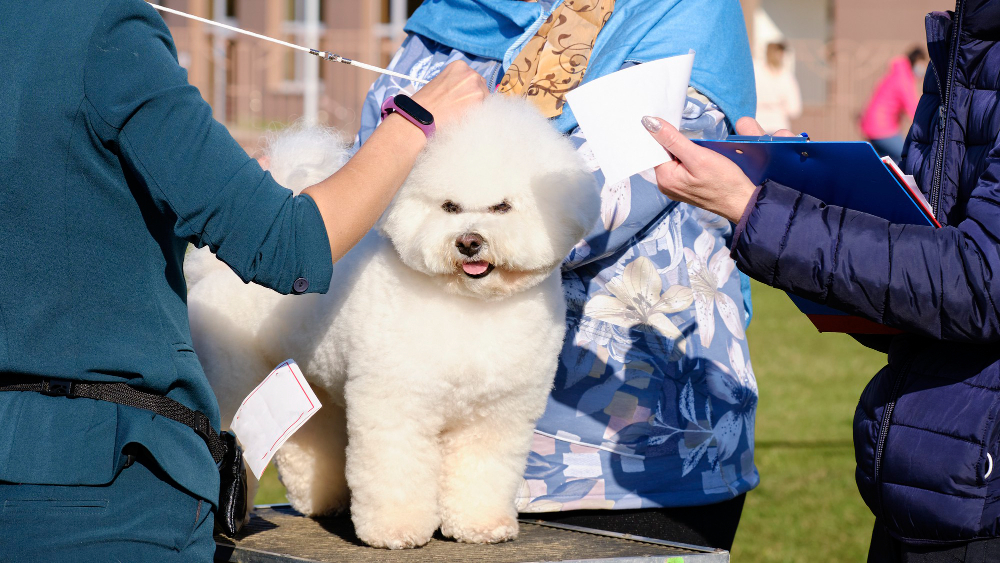A puppy without registration papers is like an orphan without a birth certificate for some dog lovers. There are at least 48 dog breed registries around the globe. The American Kennel Club, the National Kennel Club, and the United Kennel Club are three registrations in the United States.
One or more canine registries have formally recognized a breed as a registered breed. Registries establish physical, behavioral, and temperamental requirements for each breed. In addition, registration bodies encourage responsible breeding to preserve each breed’s unique features. There are 175 breeds recognized by the AKC, more than 200 by the NKC, and more than 300 by the UKC.
A registered dog often called a “paper dog,” is one that has been formally registered with one or more breed registries. Each register has its own set of rules and fees. The date of birth, parents, breed, and ownership of a dog are all confirmed on registration documents. If you have registration papers, you can enter your dog in shows, trials, and other competitive activities the breed registry offers. However, they do not guarantee a dog’s health or temperament or ensure that the dog satisfies the breed standard.
Also, consider licensing your dog if you haven’t yet. Being a dog owner comes with a lot of responsibilities. One that is sometimes missed is registering and licensing your dog with your local authorities. Only around 16 percent of canines in San Francisco, for example, are expected to be licensed. Failure to license your dog might jeopardize your chances of getting him back if he is taken to the pound and can land you in legal jeopardy.
A license tag aids animal control and shelters in swiftly identifying your dog and safely returning him to you. If your dog is spotted wandering the streets, a rescue group may quickly locate it using its license number. In addition, licensed dogs are held in the shelter for longer than unlicensed pets, who are the first to be killed if their owners do not come forward soon.
What Is the Best Registration for Dogs?
UKC registration of purebred dogs is a method through which the organization keeps track of a dog’s ancestry and participation in UKC-licensed activities. This data is crucial for breeding decisions and the breed’s general health and vigor. Purebred dogs registered with the United Kennel Club (UKC) can compete in performance events and conformation competitions. In addition, the UKC Performance Listing® Program is available for mixed-breed and shelter dogs that are only qualified to compete in UKC competitions. As a result, all dogs and their owners are welcome to attend UKC’s enjoyable, family-oriented activities.
The American Kennel Club is a non-profit organization devoted to maintaining the registry’s integrity, promoting purebred dog sports, and breeding for type and function. In addition, the AKC® and its associated organizations, founded in 1884, promote purebred dogs as family companions, enhance canine health and well-being, safeguard all dog owners’ rights, and encourage responsible dog ownership.
The Dog Lovers Registration Club UK has been in operation since 1993, and the organization is happy to report that it has been an enormous success. Based on their responses, they deliver a quick, high-quality, “no-nonsense” service, which our breeders enjoy.
The Dog Lovers Registration Club UK is not linked with or related to any other canine organization as a club. They will register Pedigree dogs and pups regardless of whether they are already registered with another kennel/registration organization – registered or unregistered dogs are both welcomed – and we welcome clients and breeds from various countries. Rare breeds are accepted at the discretion of The Dog Lovers Registration Club UK.
The fact that they can provide this documentation will help you sell your puppies and guarantee that you keep track of your breed’s history on the Dog Lovers database. Most clients treat their dogs like family pets rather than show specimens (except for exemption/companion or fun shows).
What’s The Difference Between a Registered and Non-Registered Dog?
One or more canine registries have formally recognized a breed as a registered breed. Registries establish physical, behavioral, and temperamental requirements for each breed. In addition, registration bodies encourage responsible breeding to preserve each breed’s unique features. There are 175 breeds recognized by the AKC, more than 200 by the NKC, and more than 300 by the UKC.
A registered dog often called a “paper dog,” is one that has been formally registered with one or more breed registries. Each register has its own set of rules and fees. The date of birth, parents, breed, and ownership of a dog are all confirmed on registration documents. You can enter your dog in shows, trials, and other competitive activities the breed registry offers if you have registration papers. However, they do not guarantee a dog’s health or temperament or ensure that the dog satisfies the breed standard.
What Does It Mean If a Dog Is Double Registered?
There are several purebred dog groups and registers in the United States, as well as a slew of others across the world.
You must first have both parental dogs certified with the same registration before you may breed your purebred dog with a dog from another registry. However, most foreign registrations accept dual registration and recognize all other purebred registers. So if you have a registered dog from one database and want to breed it with a dog registered with another registry, all you have to do is dual register the second dog. As a result, you’ll be able to register your purebred litter of puppies, assuring your buyers of the pups’ purebred lineage and history, and giving your puppies more value.
Many purebred dog owners like going outside a single established dog registry since private breeders are all too familiar with the dangers of in-breeding canines. According to these breeders, infusing purebred lines from other registries can help make puppies from this form of mating stronger and less prone to suffer in-bred genetic abnormalities.
How Do I Get My Unpapered Dog Papered?
You may prove your dog’s purebred pedigree by registering them. It also allows them to compete in contests and exhibitions sponsored by respected organizations like the American Kennel Club. However, you might be asking if it’s feasible to register your dog if it doesn’t have papers or isn’t purebred. Many organizations, thankfully, have registration schemes for these instances.
Check the AKC website to see if your dog is a registerable breed. Your dog must be of purebred lineage to participate in this program.
Confirm that your dog is six months old and has been spayed or neutered. These are the criteria of the American Kennel Club. One of the many advantages of getting your dog spayed or neutered is that you will be eligible for the PAL program. If your dog isn’t, you should speak with your veterinarian about having the surgery performed. Please take photos of your dog to demonstrate its face and body features. Include one full front shot of your dog to illustrate their facial traits and one complete side profile of your dog standing on a solid surface (not a grass). Include these with your application.
AKC will get the images, money, and application. Then, fill out a check or money order payable to the American Kennel Club to pay the cost. If you choose to pay by credit or debit card, the AKC will charge your card using the information you submitted in your application.














